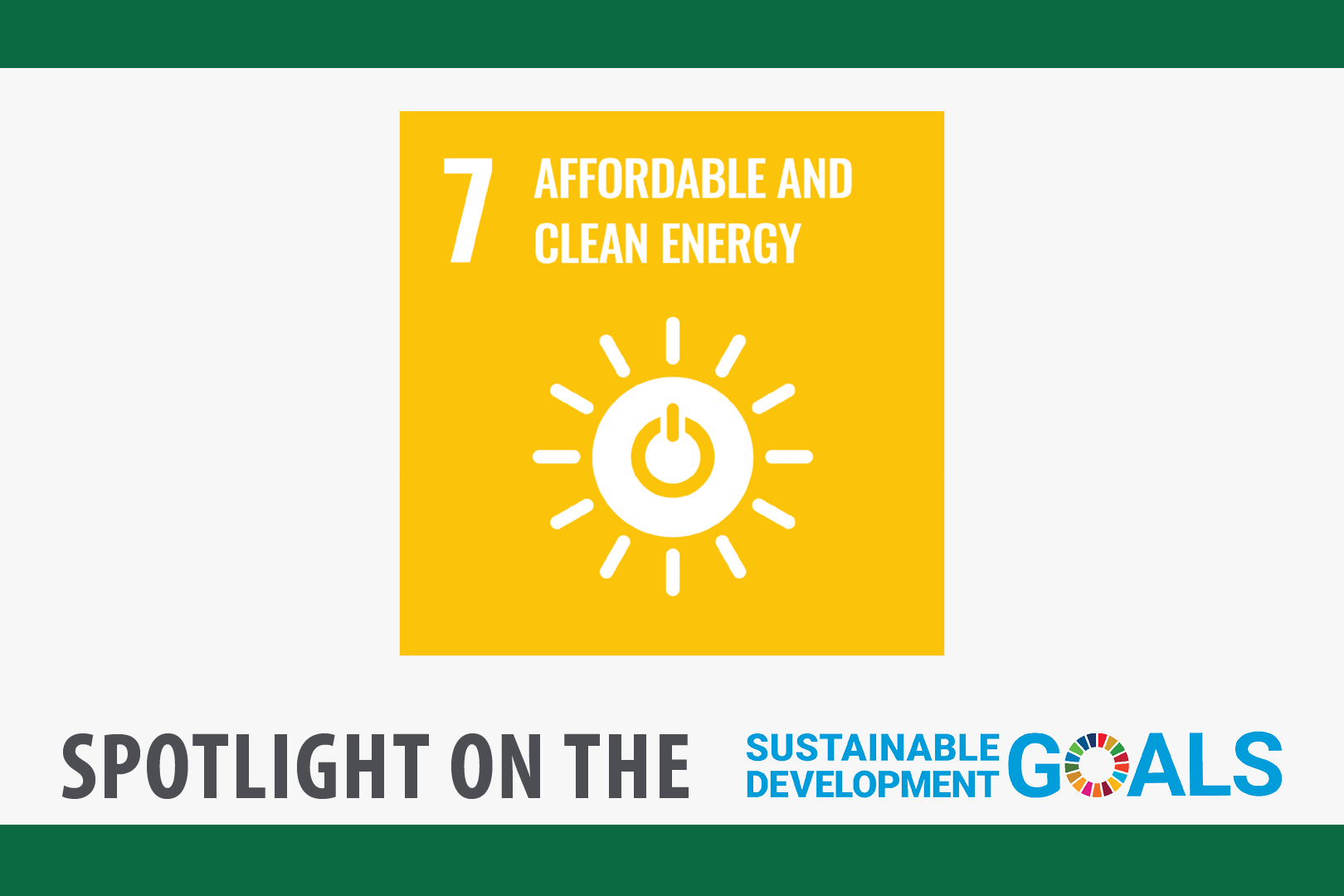
SDG Spotlight: Goal 7
Ensure access to affordable, reliable, sustainable and modern energy
Goal 7 is about ensuring access to clean and affordable energy, which is key to the development of agriculture, business, communications, education, healthcare and transportation.
The world continues to advance towards sustainable energy targets – but not fast enough. At the current pace, about 660 million people will still lack access to electricity and close to 2 billion people will still rely on polluting fuels and technologies for cooking by 2030.
Our everyday life depends on reliable and affordable energy. And yet the consumption of energy is the dominant contributor to climate change, accounting for around 60 percent of total global greenhouse gas emissions.
From 2015 to 2021, the proportion of the global population with access to electricity has increased from 87 per cent to 91 per cent.
Ensuring universal access to affordable electricity by 2030 means investing in clean energy sources such as solar, wind and thermal. Expanding infrastructure and upgrading technology to provide clean energy in all developing countries is a crucial goal that can both encourage growth and help the environment.
Why should I care about this goal?
A well-established energy system supports all sectors: from businesses, medicine and education to agriculture, infrastructure, communications and high technology.
Access to electricity in poorer countries has begun to accelerate, energy efficiency continues to improve, and renewable energy is making impressive gains. Nevertheless, more focused attention is needed to improve access to clean and safe cooking fuels and technologies for 2.3 billion people.
For many decades, fossil fuels such as coal, oil or gas have been major sources of electricity production, but burning carbon fuels produces large amounts of greenhouse gases which cause climate change and have harmful impacts on people’s well-being and the environment. This affects everyone, not just a few. Moreover, global electricity use is rising rapidly. In a nutshell, without a stable electricity supply, countries will not be able to power their economies.
Without electricity, women and girls have to spend hours fetching water, clinics cannot store vaccines for children, many schoolchildren can not do homework at night, and people cannot run competitive businesses. Slow progress towards clean cooking solutions is of grave global concern, affecting both human health and the environment, and if we don’t meet our goal by 2030, nearly a third of the world’s population – mostly women and children – will continue tobe exposed to harmful household air pollution.
To ensure access to energy for all by 2030, we must accelerate electrification, increase investments in renewable energy, improve energy efficiency and develop enabling policies and regulatory frameworks.
What are the consequences to lack of access to energy?
Energy services are key to preventing disease and fighting pandemics – from powering healthcare facilities and supplying clean water for essential hygiene, to enabling water for essential hygiene, to enabling communications and IT services that connect people while maintaining social distancing.
What can we do to fix these issues?
Countries can accelerate the transition to an affordable, reliable, and sustainable energy system by investing in renewable energy resources, prioritizing energy efficient practices, and adopting clean energy technologies and infrastructure.
Businesses can maintain and protect eco- systems and commit to sourcing 100% of operational electricity needs from renewable sources.
Employers can reduce the internal demand for transport by prioritizing telecommunications and incentivize less energy intensive modes such as train travel over auto and air travel.
Investors can invest more in sustainable energy services, bringing new technologies to the market quickly from a diverse supplier base.
You can save electricity by plugging appliances into a power strip and turning them off completely when not in use, including your computer. You can also bike, walk or take public transport to reduce carbon emissions.
SOURCE
-
Considerable strides have been made in achieving sustainable energy targets. The number of people lacking access to electricity dropped from 958 million in 2015 to 685 million in 2022. The number without clean cooking fuels declined from 2.8 billion to 2.1 billion over the same period. Global capacity to generate electricity from renewable energy has begun expanding at an unprecedented rate, a trend expected to continue.
-
Recent events, such as the COVID-19 pandemic and the war in Ukraine, have disrupted progress, including by exacerbating already insufficient international financial flows for clean energy in developing countries. Without a change in course, an estimated 660 million people will still lack electricity access and around 1.8 billion will go without clean cooking fuels and technologies by 2030.
-
To achieve universal access to clean energy by 2030, robust policies are needed to accelerate electrification, enhance energy efficiency and increase investments in renewable energy. These efforts, coupled with fostering innovative solutions and creating supportive regulatory frameworks, are pivotal to advance towards Goal 7 and meet climate objectives.

